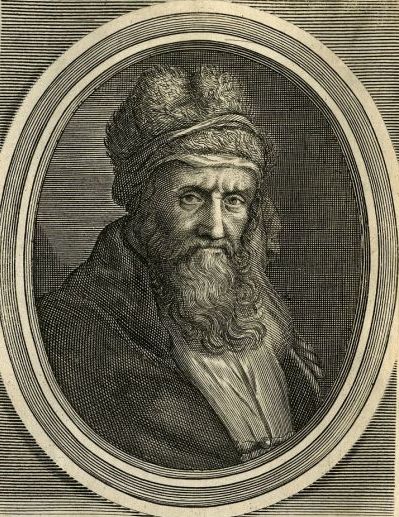“La cultura es un adorno en la prosperidad y un refugio en la adversidad.”
Fuente: Palomo Triguero, Eduardo. Cita-logía. Editorial Punto Rojo Libros,S.L. ISBN 978-84-16068-10-4. p. 83.
Diógenes Laercio fue un importante historiador griego de filosofía clásica que, se cree, nació en el siglo III d. C., durante el reinado de Alejandro Severo.[1] Se le considera un gran doxógrafo, esto es, un autor que, sin una filosofía propia, recoge por escrito la biografía, las vicisitudes, las anécdotas, las opiniones y las teorías de otros, a los que considera ilustres. Wikipedia

“La cultura es un adorno en la prosperidad y un refugio en la adversidad.”
Fuente: Palomo Triguero, Eduardo. Cita-logía. Editorial Punto Rojo Libros,S.L. ISBN 978-84-16068-10-4. p. 83.
Fuente: Palomo Triguero, Eduardo. Cita-logía. Editorial Punto Rojo Libros,S.L. ISBN 978-84-16068-10-4. p. 57.
Fuente: Jiménez, Chal. Marca la diferencia: Porque tú lo vales. Editorial ESIC Editorial, 2014. ISBN 9788473566520. p. 157.
“La cultura es un saber del que no tiene uno que acordarse… fluye espontáneamente.”
Fuente: Sarmiento, J. M. Mil y una frases célebres. Editorial Planet House Editorials, 2016.
“Para casarte, cuando joven es temprano y cuando viejo es tarde.”
Fuente: Las mejores citas de provocación / Best provocation sayings: contra todo y contra todos. Coña fina. Autor y editor Samuel Red. Editorial Grasindo, 2008. ISBN 9788479277802. p. 89.
Aristippus, 4.
The Lives and Opinions of Eminent Philosophers (c. 200 A.D.), Book 2: Socrates, his predecessors and followers
“They say that the first inclination which an animal has is to protect itself.”
Zeno, 52.
The Lives and Opinions of Eminent Philosophers (c. 200 A.D.), Book 7: The Stoics
“Protagoras asserted that there were two sides to every question, exactly opposite to each other.”
Protagoras, 3.
The Lives and Opinions of Eminent Philosophers (c. 200 A.D.), Book 9: Uncategorized philosophers and Skeptics
“Pittacus said that half was more than the whole.”
Pittacus, 2.
The Lives and Opinions of Eminent Philosophers (c. 200 A.D.), Book 1: The Seven Sages
Socrates, 10.
The Lives and Opinions of Eminent Philosophers (c. 200 A.D.), Book 2: Socrates, his predecessors and followers
Theophrastus, 10.
The Lives and Opinions of Eminent Philosophers (c. 200 A.D.), Book 5: The Peripatetics
“Old age is the harbor of all ills.”
Bion, 47.
The Lives and Opinions of Eminent Philosophers (c. 200 A.D.), Book 4: The Academy
Thales, 9.
The Lives and Opinions of Eminent Philosophers (c. 200 A.D.), Book 1: The Seven Sages
Zeno, 74.
The Lives and Opinions of Eminent Philosophers (c. 200 A.D.), Book 7: The Stoics
“When asked what learning was the most necessary, he said, "Not to unlearn what you have learned."”
Antisthenes, 4.
The Lives and Opinions of Eminent Philosophers (c. 200 A.D.), Book 6: The Cynics
Aristotle, 9.
The Lives and Opinions of Eminent Philosophers (c. 200 A.D.), Book 5: The Peripatetics
“Diogenes lighted a candle in the daytime, and went round saying, "I am looking for a man."”
Diogenes, 6.
The Lives and Opinions of Eminent Philosophers (c. 200 A.D.), Book 6: The Cynics
Diogenes, 6.
The Lives and Opinions of Eminent Philosophers (c. 200 A.D.), Book 6: The Cynics
Plato, 51.
The Lives and Opinions of Eminent Philosophers (c. 200 A.D.), Book 3: Plato
Thales, 8.
The Lives and Opinions of Eminent Philosophers (c. 200 A.D.), Book 1: The Seven Sages
“It was a saying of his that education was an ornament in prosperity and a refuge in adversity.”
Aristotle, 9.
The Lives and Opinions of Eminent Philosophers (c. 200 A.D.), Book 5: The Peripatetics
“Aristippus said that a wise man’s country was the world.”
Aristippus, 13.
The Lives and Opinions of Eminent Philosophers (c. 200 A.D.), Book 2: Socrates, his predecessors and followers